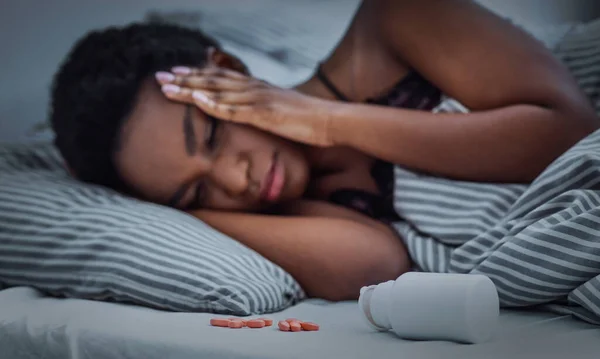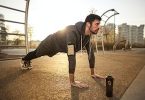There are several healthy ways to fall asleep, but most people aren’t aware. A good night’s sleep is essential to your health, and it’s as crucial as eating a well-balanced diet or exercising.
Though individual sleep requirements vary, most adults need seven to nine hours per night. Despite this, up to 35% of Americans don’t get enough sleep.
Sleep deprivation can jeopardize your health and safety, so you must regularly prioritize and safeguard your sleep.
In this article, you will find out several healthy ways to fall asleep, and you may have to continue reading to find out how.
10 Healthy Ways To Fall Asleep

Experiencing difficulty falling and staying asleep can be frustrating, and can also affect your mental and physical health.
Here are some healthy ways to help you fall asleep quickly, sleep much better and have more energy the next day.
1. Keep the light off
Bright light influences the circadian rhythm, which helps the brain and body determine when it’s time for bed.
Many individuals find it challenging to get a good night’s rest when their sleeping space is overly lit up.
Therefore, it’s best to keep the room as dark as possible when it’s time for bed.
Studies have shown that even low levels of light can suppress melatonin production, making it harder to fall asleep and stay asleep.
Using blackout curtains or an eye mask can help create a darker environment, promoting better sleep quality.
In addition to reducing light exposure, consider incorporating a bedtime routine that gradually dims the lights in your home. This can signal to your body that it’s time to wind down.
2. Avoid sleep during the day
Daytime naps, particularly those lasting more than two hours, can potentially throw off the circadian cycle.
According to a study, students who napped three times weekly and who napped for two hours longer had poorer sleep quality.
It’s tempting to take a long nap after a bad night’s sleep. However, avoid doing so because it can disrupt a healthy sleep pattern.
Research shows that brief naps can enhance alertness and performance without disrupting nighttime sleep, but longer naps can lead to grogginess and disrupt your sleep cycle.
Additionally, if you find yourself needing long naps frequently, it might be a sign that you’re not getting enough quality sleep at night.
3. Exercise during the day
Physical exercise has a positive impact on sleep quality. A 2023 study discovered that moderate or low-intensity exercise improves sleep quality.
The study also found that participants’ sleep medications were taken less frequently.
It is important to time your exercise correctly. Exercising too close to bedtime can be stimulating, making it harder to fall asleep.
Aim to finish your workout at least three hours before you plan to go to bed. Morning or early afternoon exercise is ideal as it helps to establish a consistent sleep-wake cycle and can even help reduce symptoms of insomnia.
4. Avoid using your cell phone before going to bed
There is a lot of dialogue concerning whether or not using a cell phone before bed impacts sleep.
People with addictive texting behavior had poorer sleep quality. Sleep difficulties may be less common in people who don’t use their phones in this way.
Furthermore, the blue light emitted by cell phones and other electronic devices can interfere with your ability to fall asleep by suppressing melatonin production.
A study published in the journal Sleep Medicine Reviews found that blue light exposure from screens can delay sleep onset, reduce sleep efficiency, and increase the time it takes to fall asleep.
5. Avoid caffeine
Caffeine is a stimulating substance, and it’s commonly ingested regularly by people who want to remain active.
It promotes a state of vigilance and can disrupt sleep cycles.
As a result, it’s advised to avoid coffee or other caffeinated beverages at least four hours before bedtime.
To improve your sleep, try to limit your caffeine intake to the morning hours. Opt for caffeine-free alternatives in the afternoon and evening, such as herbal teas or warm milk.
6. Try meditation or mindfulness
Meditation and being mindful can help you sleep better.
This approach can help quiet an anxious mind by diverting the person’s attention and sleeping easily.
Practicing mindfulness and meditation are healthy ways to fall asleep.
Incorporating a short meditation session into your bedtime routine can help signal to your body that it’s time to wind down.
Even just a few minutes of deep breathing or progressive muscle relaxation can help ease tension and prepare your mind for restful sleep.
7. Use ASMR
Autonomous sensory meridian response (ASMR) is the “tingly feeling” that moves from the head downwards that people experience in response to certain sounds, feelings, or descriptions.
There is anecdotal evidence which suggest that ASMR may help some people sleep better. ASMR seems to stimulate areas of the brain associated with calming, sleep-inducing hormones such as dopamine and oxytocin.
A large percentage of people have reported using ASMR to fall asleep.
8. Read a book before bed
Reading a book before going to bed can be helpful in making you fall asleep. It can reduce rest, and also help you fall asleep faster.
It takes your mind off your own troubles and helps you doze off. However, always read in a comfortable position, whether sitting or lying down.
Reading before bed can be an effective way to relax and prepare your mind for sleep as it helps distract you from the stresses of the day.
Alternatively, you can listen to podcasts and audiobooks to help you sleep.
9. Watch what you eat
What a person consumes, especially in the evening, can affect how well they sleep.
Eating a substantial dinner within an hour of going to bed, for example, can make it challenging to sleep. Ultimately, meals can take at least 2–3 hours to digest.
In some people, lying down during this time might cause discomfort or nausea and impede the digestion process.
Ideally, you should provide adequate time for the body to digest a meal before lying down.
To promote better sleep, try to have your last meal of the day at least two to three hours before bedtime. Opt for lighter, easily digestible foods in the evening.
Foods rich in tryptophan, such as turkey, bananas, and dairy, can promote the production of serotonin and melatonin, helping you fall asleep more easily.
10. Use essential oils
Inhaling an essential oil has been demonstrated to improve sleep quality in both young, healthy adults and older adults because it activates the parasympathetic nervous system.
Many studies have shown that the use of essential oils was effective in boosting sleep quality.
Aromatherapy with essential oils can be a powerful tool for improving sleep. Certain scents, such as lavender and chamomile, have been shown to promote relaxation and reduce anxiety.
Conclusion
The best way to ensure that the mind and body get the rest they require is to fall asleep naturally. Using these healthy ways to fall asleep listed above can help you fall asleep faster without sleep aids.








